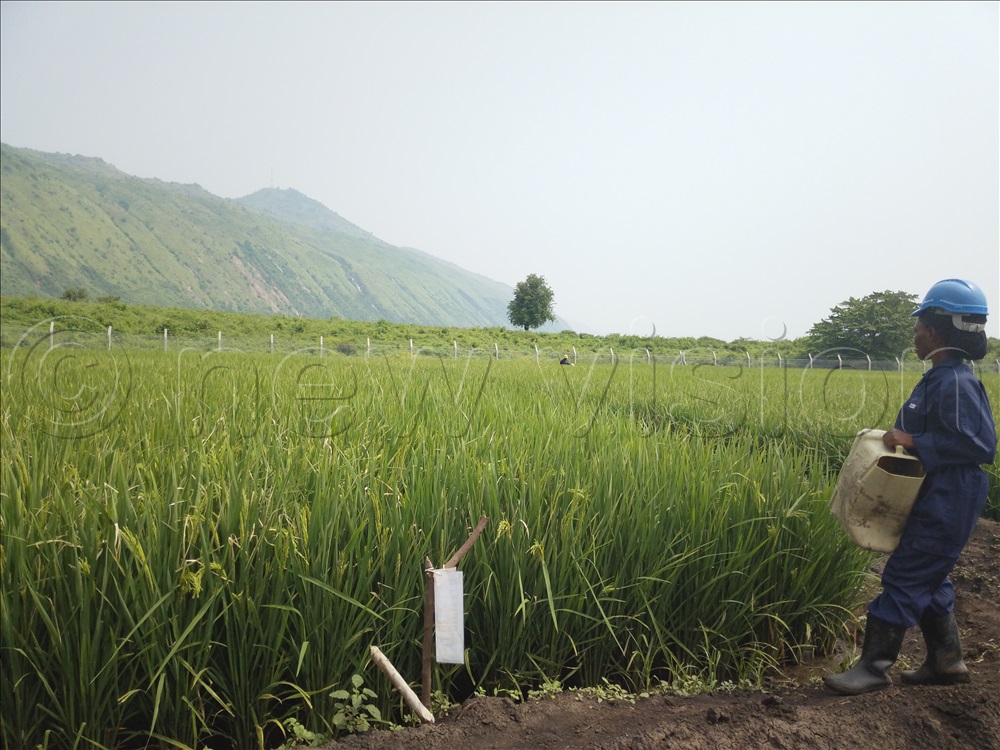Kikuube farmers urged to adopt fast-maturing crops to boost food security
In a bid to improve food production and nutrition, farmers in Kikuube are being supplied with hybrid rice and millet that mature quickly and withstand harsh weather.
CNOOC president Lui Xiangdong and PAU executive director Rubondo touring some of the hybrid rice farms in Buhuku, Kyangwali sub-county in Kikuube district on Thursday. (Photos by Wilson Asiimwe)
________________
Farmers in Kikuube district have been urged to embrace new varieties of fast-maturing crops to improve food production and fight malnutrition.
The region has long struggled with insecurity and climate change, both of which have adversely affected agricultural output.
In a bid to improve food production and nutrition, farmers in Kikuube are being supplied with hybrid rice and millet that mature quickly and withstand harsh weather.
Mathew Kyaligonza, the land acquisition and livelihood restoration officer at CNOOC Uganda, said the company is supporting this initiative by distributing the crops to households in the district.
The Uganda Bureau of Statistics (UBOS) 2024 nutrition report indicates that 26% of Ugandan children aged between one and five years are stunted. In Bunyoro, child stunting stands at 25%.
Kikuube district continues to face high levels of malnutrition, according to the acting district health officer, Dr Gerald Asaba.

Kyaligonza noted that the distributed crops are drought-tolerant and resistant to pests and diseases, which could help reduce the risk of food insecurity among households.
“We have so far supported over 310 farmers with hybrid seeds of fast maturing millet of foxtail and rice of WDR-7S, and also given out pigs to about 410 farmers and set up demonstration farms where the farmers can able to learn good farming practices,” Kyaligonza said.
Project manager Conrad Mugume said that several farmer groups are being encouraged to seek training and benefit from the programme.
‘’We have disseminated planting materials, rice, millet, and sorghum and also pigs, which are quite common in Kikuube; these seeds, if managed well, can solve hunger crises in the families,’’ Mugume reiterated.
He added that trials are underway with different species of trees suitable for dry lands in an effort to improve tree coverage in the region.
Earnest Rubondo, the executive director of the Petroleum Authority of Uganda, welcomed CNOOC’s interventions, noting that they will help farmers access quality planting materials on time and boost production.
“We are happy with the livelihood restoration programs of CNOOC; these are long-term initiatives aimed at helping the people affected by the project to increase production,” he said.
Rubondo further urged farmers to embrace high-value crops that mature quickly, given the impact of weather changes on production.